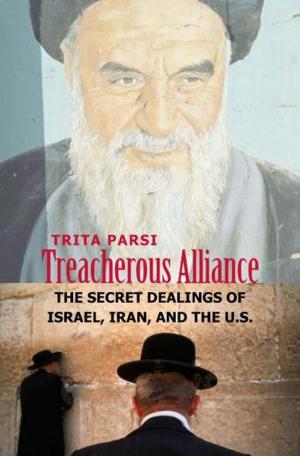The Bride and the Dowry: Israel, Jordan, and the Palestinians in the Aftermath of the June 1967 War
Nonfiction, History, Middle East, Israel, Modern, 20th Century| Author: | Avi Raz | ISBN: | 9780300183535 |
| Publisher: | Yale University Press | Publication: | July 17, 2012 |
| Imprint: | Yale University Press | Language: | English |
| Author: | Avi Raz |
| ISBN: | 9780300183535 |
| Publisher: | Yale University Press |
| Publication: | July 17, 2012 |
| Imprint: | Yale University Press |
| Language: | English |
Israel's victory in the June 1967 Six Day War provided a unique opportunity for resolving the decades-old Arab-Zionist conflict. Having seized the West Bank, the Gaza Strip, the Sinai Peninsula, and the Golan Heights, Israel for the first time in its history had something concrete to offer its Arab neighbors: it could trade land for peace. Yet the political deadlock persisted after the guns fell silent. This book asks why.
Avi Raz places Israel's conduct under an uncompromising lens. His penetrating book examines the critical two years following the June war and substantially revises our understanding of how and why Israeli-Arab secret contacts came to naught. Mining newly declassified records in Israeli, American, British, and United Nations archives, as well as private papers of individual participants, Raz dispels the myth of overall Arab intransigence and arrives at new and unexpected conclusions. In short, he concludes that Israel's postwar diplomacy was deliberately ineffective because its leaders preferred land over peace with its neighbors. The book throws a great deal of light not only on the post-1967 period but also on the problems and pitfalls of peacemaking in the Middle East today.
Israel's victory in the June 1967 Six Day War provided a unique opportunity for resolving the decades-old Arab-Zionist conflict. Having seized the West Bank, the Gaza Strip, the Sinai Peninsula, and the Golan Heights, Israel for the first time in its history had something concrete to offer its Arab neighbors: it could trade land for peace. Yet the political deadlock persisted after the guns fell silent. This book asks why.
Avi Raz places Israel's conduct under an uncompromising lens. His penetrating book examines the critical two years following the June war and substantially revises our understanding of how and why Israeli-Arab secret contacts came to naught. Mining newly declassified records in Israeli, American, British, and United Nations archives, as well as private papers of individual participants, Raz dispels the myth of overall Arab intransigence and arrives at new and unexpected conclusions. In short, he concludes that Israel's postwar diplomacy was deliberately ineffective because its leaders preferred land over peace with its neighbors. The book throws a great deal of light not only on the post-1967 period but also on the problems and pitfalls of peacemaking in the Middle East today.















